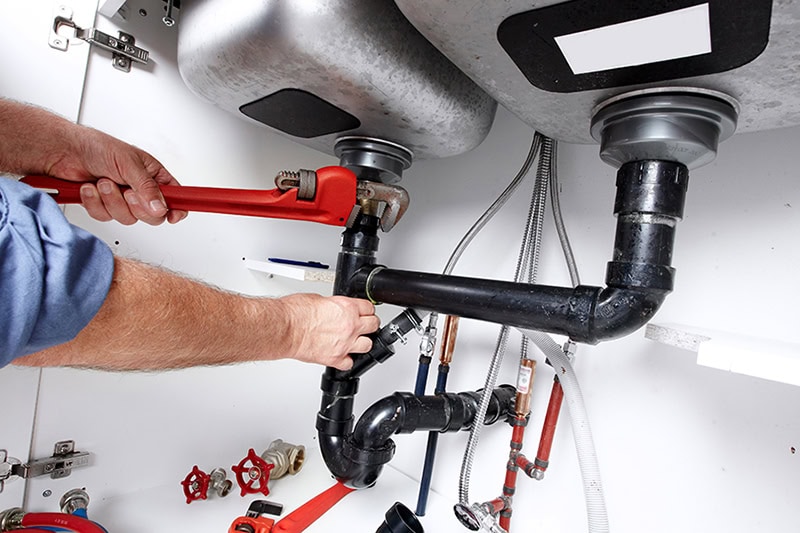The Effects of Drain Openers on Pipes

Let’s be honest—dealing with a clogged drain is never on anyone’s list of fun weekend activities in Placerville. One minute, you’re taking a shower, and the next, you’re watching water pool around your feet like a tiny indoor swamp. Gross.
Before reaching for a bottle of drain opener, it’s important to understand how these chemicals affect your plumbing system. While these products may offer temporary relief, they can also cause drain damage and lead to costly drain repairs.
Whether you have a clogged kitchen sink, a slow-draining bathtub, or a mysterious gurgling sound coming from your pipes, knowing the best way to tackle the problem can save you time, money, and frustration.
In this guide, US Trenchless breaks down the negative effects of these store-bought chemical drain openers, what to try instead, and gives a few tips to avoid clogs in the future. So, if you’re ready to kick clogs to the curb and keep your drains flowing smoothly, let’s dive in!
How Chemical Drain Openers Work
Most commercial drain openers use powerful chemicals, such as sulfuric acid or sodium hydroxide (lye), to break down hair, grease, soap scum, and other debris.
These chemicals create a reaction that generates heat, which helps dissolve the blockage and restore water flow. However, this intense reaction can also harm your pipes over time.
The Negative Effects of Drain Openers on Pipes
1. Corrosion and Pipe Damage
Chemical drain openers are highly corrosive. While they may be effective at breaking down clogs, they can also eat away at the inner lining of your pipes. This is especially true for older plumbing systems or pipes made of metal, such as cast iron or galvanized steel.
Repeated use of drain cleaners can weaken the structure of your pipes, leading to leaks and the need for extensive drain repair.
2. Damage to PVC and Plastic Pipes
Many modern homes have PVC pipes, which are made of plastic. The heat generated by chemical drain openers can soften and warp these pipes, causing them to weaken and potentially crack. If this happens, you may face not only a recurring clogged drain but also a full pipe replacement.
3. Harmful to Septic Systems
If your home uses a septic system, chemical drain cleaners can disrupt the natural bacterial balance inside your septic tank. These bacteria are essential for breaking down waste. The harsh chemicals of drain openers can kill the bacteria, leading to system malfunctions, backups, and costly repairs.
4. Health and Safety Hazards
Chemical drain cleaners contain toxic ingredients that can cause skin burns, respiratory issues, and eye damage if handled improperly. Additionally, if the cleaner doesn’t fully dissolve the clog, it can remain in the pipe, posing a risk if other chemicals are later introduced. Mixing drain openers with other household cleaning agents can create dangerous fumes or even explosions.
Alternatives to Chemical Drain Openers
Instead of relying on harsh chemicals, consider these safer and more effective methods to clear a clogged drain:
1. Plungers
A plunger is often the first line of defense against a clogged drain. It creates suction and pressure to help dislodge blockages without damaging your pipes.
2. Drain Snakes and Augers
A drain snake (also known as a plumber’s auger) is a flexible tool that can reach deep into your pipes to break up or retrieve debris causing the clog.
3. Baking Soda and Vinegar
A natural and eco-friendly alternative is to pour a cup of baking soda down the drain, followed by a cup of vinegar. The reaction helps break up minor blockages without causing drain damage.
4. Hot Water and Dish Soap
For grease-related clogs, pouring boiling water mixed with dish soap down the drain can help dissolve the buildup without harming your pipes.
5. Professional Drain Cleaning Services
If your drain remains clogged despite your efforts, calling a professional plumber for drain repair and cleaning is the safest and most effective option. Plumbers use specialized tools, such as motorized augers, or methods, like hydro jetting, to remove blockages without damaging your pipes.
Preventing Future Drain Clogs
To avoid frequent clogs and reduce the need for drain repair, follow these preventive measures:
- Use drain covers to catch hair, food particles, and other debris.
- Avoid pouring grease, coffee grounds, or food scraps down the sink.
- Flush your drains with hot water regularly to prevent buildup.
- Schedule professional drain inspections to catch potential issues before they escalate.
Call US Trenchless for Drain Clog Repairs
While chemical drain openers may seem like a quick and easy solution for a clogged drain, they often do more harm than good. From causing drain damage to posing serious health hazards, these products can create long-term plumbing issues that require costly drain repair.
Instead, opt for safer alternatives like plungers, drain snakes, or natural cleaning solutions. If you’re dealing with persistent clogs, consulting a professional plumber near you is the best way to protect your pipes and keep your plumbing system running smoothly.
US Trenchless services the greater Placerville, CA, area. If you have a clog, we can fix it! Call us at 877-916-7473 or request service online to get your pipes flowing freely again.
